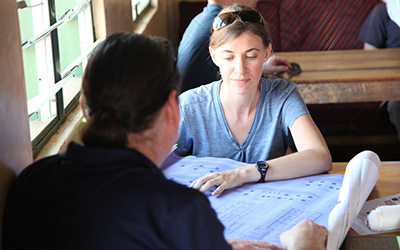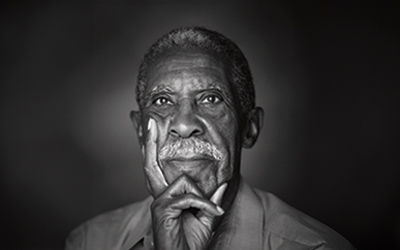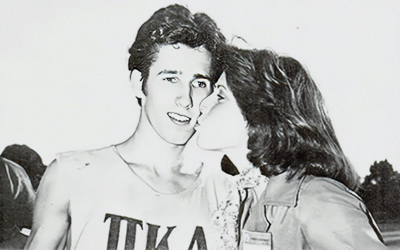In days of old, Boy Scouts ushering fans to their seats were a common sight at Auburn football games. What happened?
By Derek Herscovici ’14
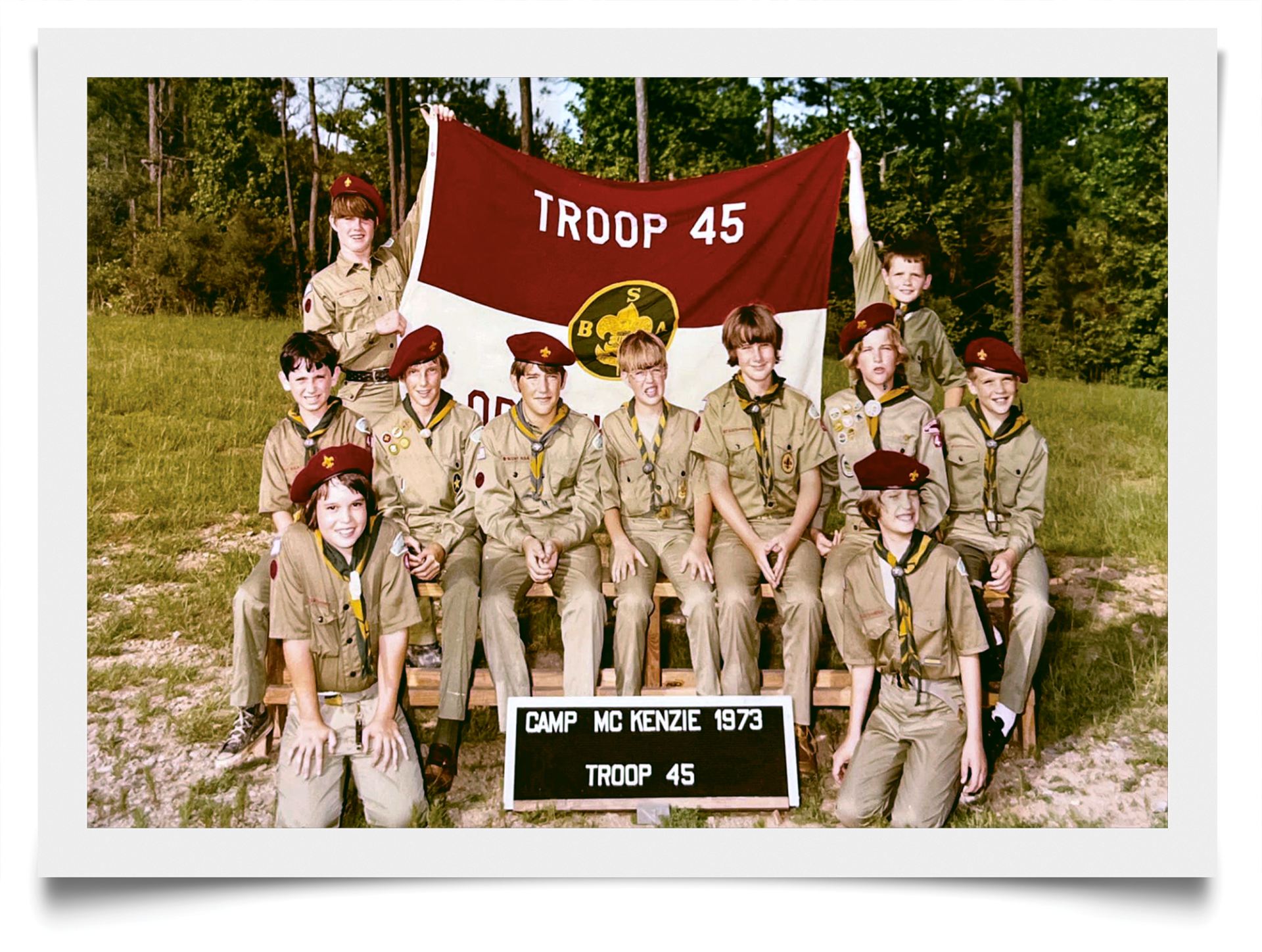
According to the Boy Scout Law, scouts are trustworthy, loyal, helpful, friendly, courteous, kind, obedient, cheerful, thrifty, brave, clean and reverent. About a century ago, they were also ushers at football games.
In an era when most listened to games on the radio, those lucky enough to attend in person dressed up for the occasion. Former Auburn Alumni Association board director Bob Jones ’74, who witnessed Auburn football legends like Jimmy Seidel and Tucker Frederickson in exchange for ushering, compares it to going to the theater.
“I was in Troop 25 in the early ’60s when I did it,” recalls Jones. “Boys from the various troops came, [the fans] gave us their tickets, and we ushered them to their seats. And then after the game started, we got to go sit in the end zone and watch.”
At the time, Auburn’s stadium was open at both ends and the scouts would sit in wooden bleachers at the field’s edge. However unglamorous their seats, the scouts didn’t mind.
“That was our ‘pay’ for the deal, but it was a big deal,” said Jones. “I would not have gotten to attend games if not for that.”
Public services like ushering have been a powerful marketing tool since the beginning of scouting. At Woodrow Wilson’s 1913 presidential inauguration, three years after the founding of the Boy Scouts of America (BSA), a deputation of scouts provided emergency assistance to the heat-stricken crowd, establishing a tradition of scouts at inaugurations ever since. As college football spread in popularity, “Operation Usher,” as it was called, became national practice. A high-water mark was the 1922 Michigan-Ohio State football game, where an estimated 1,200 scouts ushered spectators to their seats.
Despite no definitive history of Operation Usher, a 1922 article in the Montgomery Advertiser states scouts ushered the Auburn-Tulane game held at Montgomery’s Cramton Bowl that year. Later, they ushered Auburn-Georgia games in Columbus in the 1930s.
“Scouts are known for their service to the community, and this gave a lot of boys an opportunity to see a college football game and visit a college campus that may not have been able to do so otherwise.”
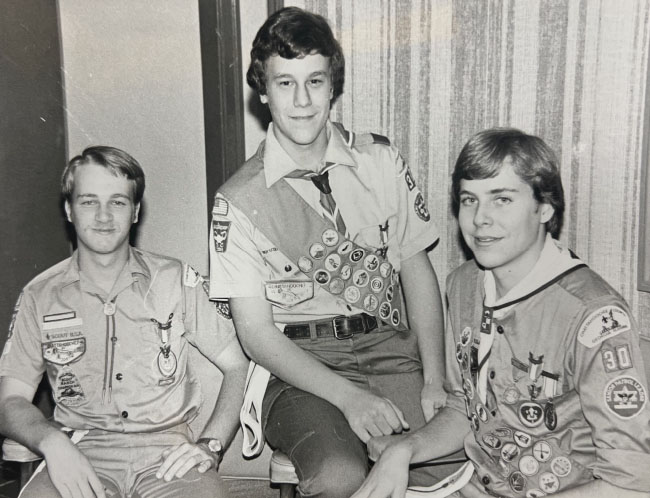
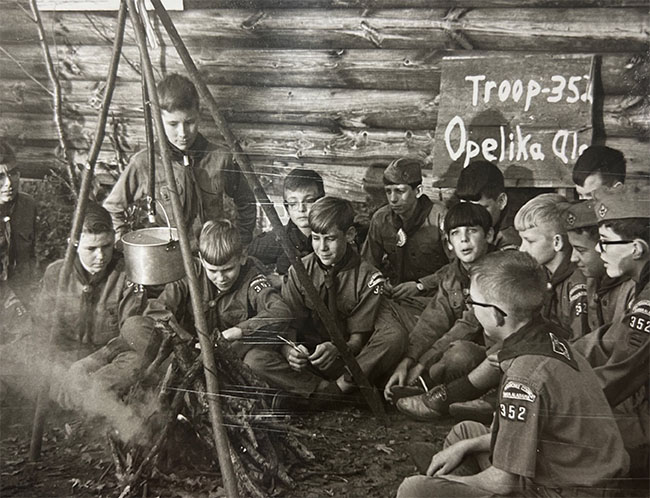
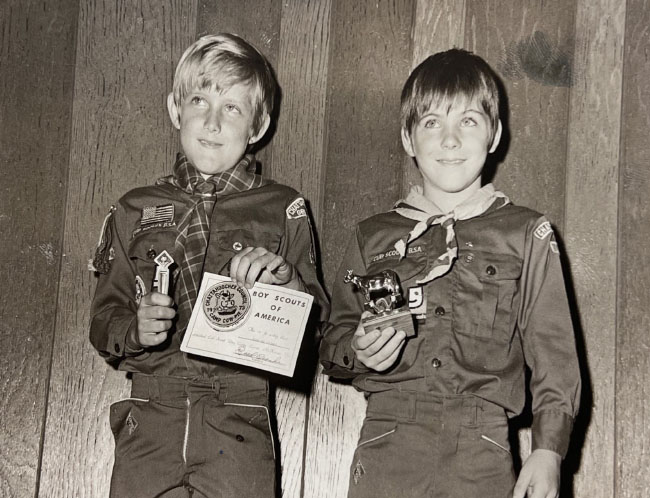
But as a starting point, the Opelika Daily News states that in 1947, Montgomery Scout Council Commissioner B.C. Goode proposed scout ushers for the annual “Blue-Gray” game in Montgomery.
Operation Usher was so successful, the Auburn Athletic Association invited the BSA to usher all home games beginning in 1949.
“The scouts lined the stadium steps and helped people to their seats,” said former athletic director and Auburn historian David Housel ’69. “They never did a whole lot. I’m sure they helped old men and old ladies find their seats, but they were there mainly as a show of courtesy and support. They were doing good deeds.”
In 1970, when Auburn’s stadium added the north end zone section and went from 44,000 seats to 64,000, the demand for scouts exceeded the area’s BSA troop population. A similar predicament befell the Auburn Lions Club, a civic group that handled ticketing in exchange for entry to the game. Despite busing in people to augment their numbers, the Lions Club couldn’t keep up.
“I have never been cussed out as bad as I have by a Lion when we told him we’d have to move in another direction,” said Housel. “But it all worked out.”
While the BSA was no longer the exclusive ushers for Auburn, there’s plenty of evidence that they stuck around.
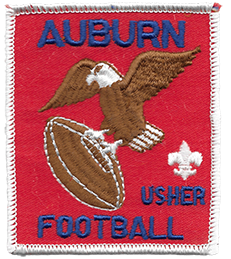
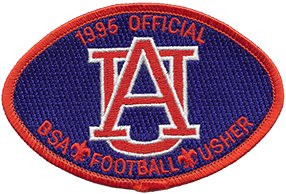
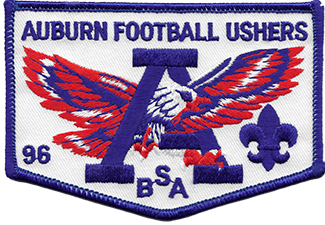
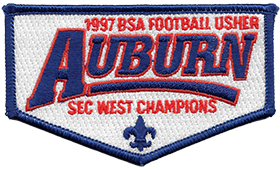
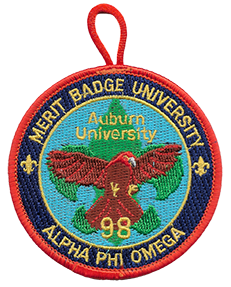
Building Hope: Disaster Relief Architecture & Design
Combining faith and design, disaster response architect Sarah Elizabeth Dunn ’03 builds shelters for disaster-stricken communities around the world.
Harold Franklin Reflects on Integration 50 Years Later
Fifty years ago, unsure of his safety, a tall, soft-spoken Black man walked alone across the Auburn campus to register for classes.
Auburn Love Stories: How They Met
From blind dates to football games to chance meetings in the classroom, Auburn alums reflect on how they found love and everlasting romance on the Plains.
Building Hope: Disaster Relief Architecture & Design
Combining faith and design, disaster response architect Sarah Elizabeth Dunn ’03 builds shelters for disaster-stricken communities around the world.
Harold Franklin Reflects on Integration 50 Years Later
Fifty years ago, unsure of his safety, a tall, soft-spoken Black man walked alone across the Auburn campus to register for classes.
Auburn Love Stories: How They Met
From blind dates to football games to chance meetings in the classroom, Auburn alums reflect on how they found love and everlasting romance on the Plains.
